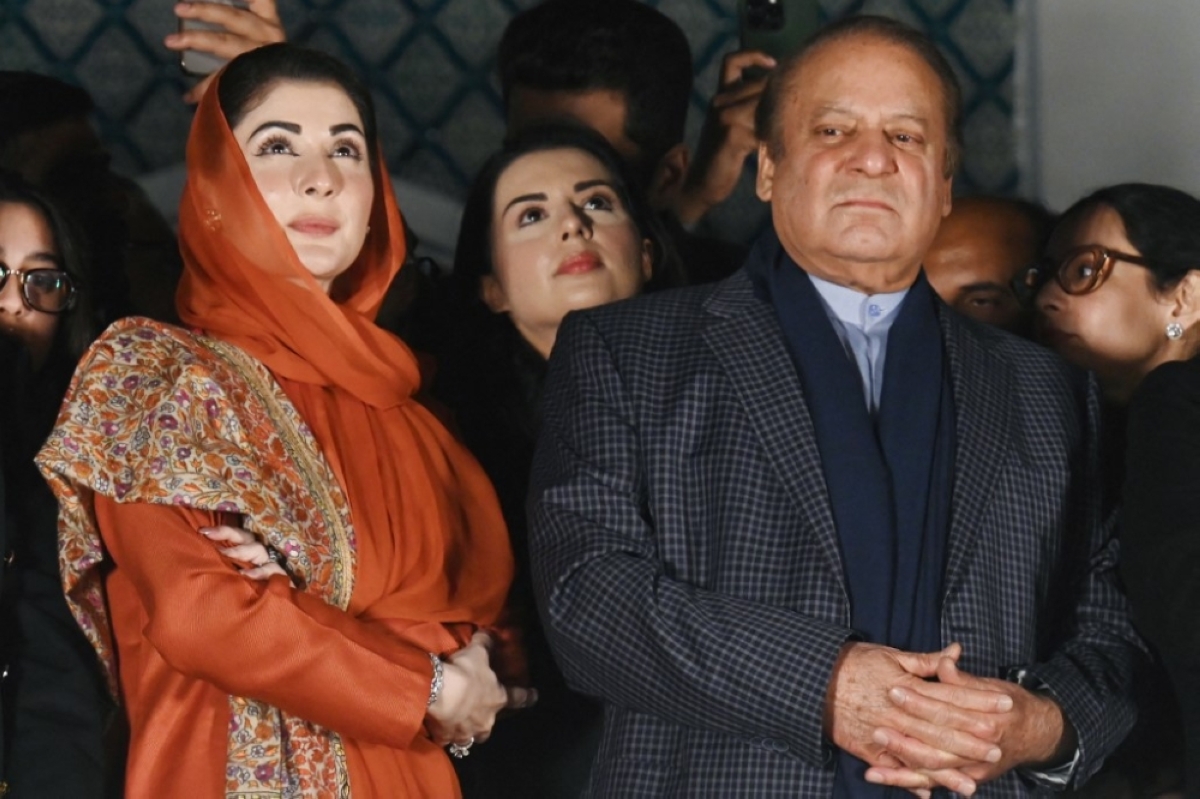
ISLAMABAD: Pakistan's army chief told feuding politicians on Saturday to show "maturity and unity" after an election failed to produce a clear winner, leaving the military's favored party having to cobble together a coalition in order to rule.
The South Asian country faces days of political horse-trading after a strong performance by independent candidates loyal to jailed former prime minister Imran Khan scuppered the chances of the army-backed Pakistan Muslim League-Nawaz (PML-N) from winning a ruling majority.
Khan's Pakistan Tehreek-e-Insaf (Pakistan Movement for Justice or PTI) defied a monthslong crackdown that crippled campaigning and forced candidates to run as independents with a combined showing that still challenged their rivals.
The military looms large over Pakistan's political landscape, with generals having run the country for nearly half its history since its partition from India in 1947.
"Elections are not a zero-sum competition of winning and losing but an exercise to determine the mandate of the people," army chief Gen. Syed Asim Munir said in a statement from the military.
"As the people of Pakistan have reposed their combined trust in the Constitution of Pakistan, it is now incumbent upon all political parties to reciprocate the same with political maturity and unity," he said.
"The nation needs stable hands and a healing touch to move on from the politics of anarchy and polarization, which does not suit a progressive country of 250 million people," he added.
Forced to cut deals
After long delays in results that prompted further allegations that the military establishment had engaged in vote-rigging, PML-N declared victory on Friday as the party with the largest number of seats.
However, to form a government, the party founded by three-time former premier Nawaz Sharif will be forced to cut deals with rivals and independents.
There were reports late on Friday of leaders from several parties arriving in the PML-N's power base of Lahore for talks.
"We don't have enough of a majority to run the government ourselves; therefore, we invite the other parties and candidates who have been successful to work with us," Sharif said at his party headquarters in the eastern Pakistani city.
In an artificial intelligence-generated video produced by PTI, Khan was credited as claiming victory for the party.
"According to independent sources, we were winning 150 national assembly seats before the rigging started," said the message posted on his X account, which featured a genuine video clip of him from a year ago and an AI-generated voice-over.
A slow counting process showed independents had won at least 100 seats — 89 of them loyal to Khan — by Saturday morning.
PML-N took 71 and the Pakistan People's Party (PPP) snapped up 54, with 13 of the elected 266-seat National Assembly still to be announced.
Minor parties shared 27 seats between them — including the Muttahida Qaumi Movement (MQM), which took 17 — which are likely to be of great interest to PTI in the coming days.
If PTI's independents join one of them, they can take a share of the further 70 unelected seats reserved for women and religious minorities, which are allocated according to party performance in the contested vote.
'Recount our votes'
Most of the seats won by Khan loyalists were in northwestern Khyber Pakhtunkhwa province, where police said at least two PTI supporters were killed on Friday and more than 20 wounded when they protested against alleged vote-rigging in Shangla district — the first serious post-election violence reported.
"Our results have been changed," claimed 28-year-old shopkeeper Muhammad Saleem, who joined about 2,000 PTI supporters marching in the provincial capital Peshawar. "The government should recount all of our votes."
Khan was barred from contesting the election after being handed several lengthy prison sentences in the days leading up to the vote.
A nationwide election day mobile telephone blackout and the slow counting of results led to suspicions that the military establishment was influencing the process to ensure Sharif's success.
"PTI as a party and political group, despite significant efforts by the civilian and military establishment, has held on to its vote bank," said Bilal Gilani, executive director of the Gallup Pakistan polling group.
"It shows that the military does not always get their way — that is the silver lining," he told Agence France-Presse.
Read The Rest at :







